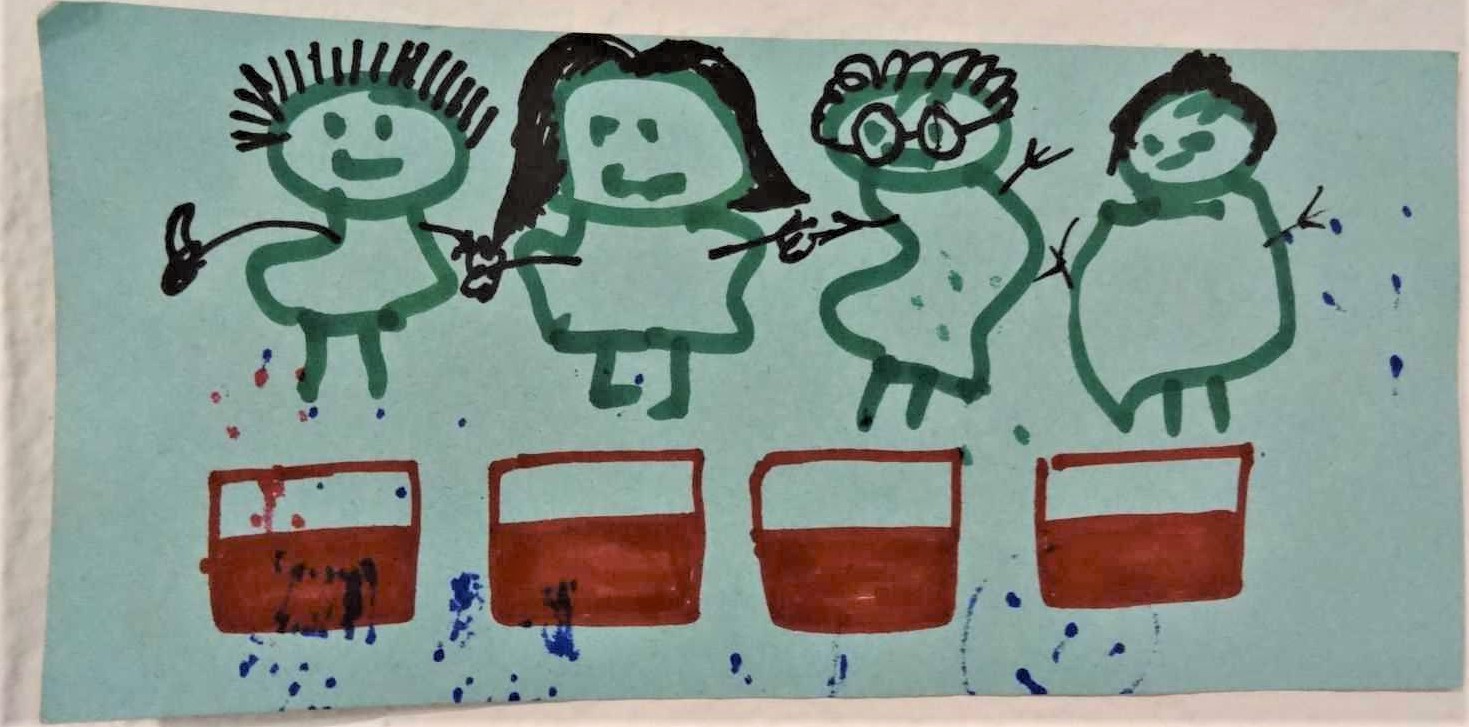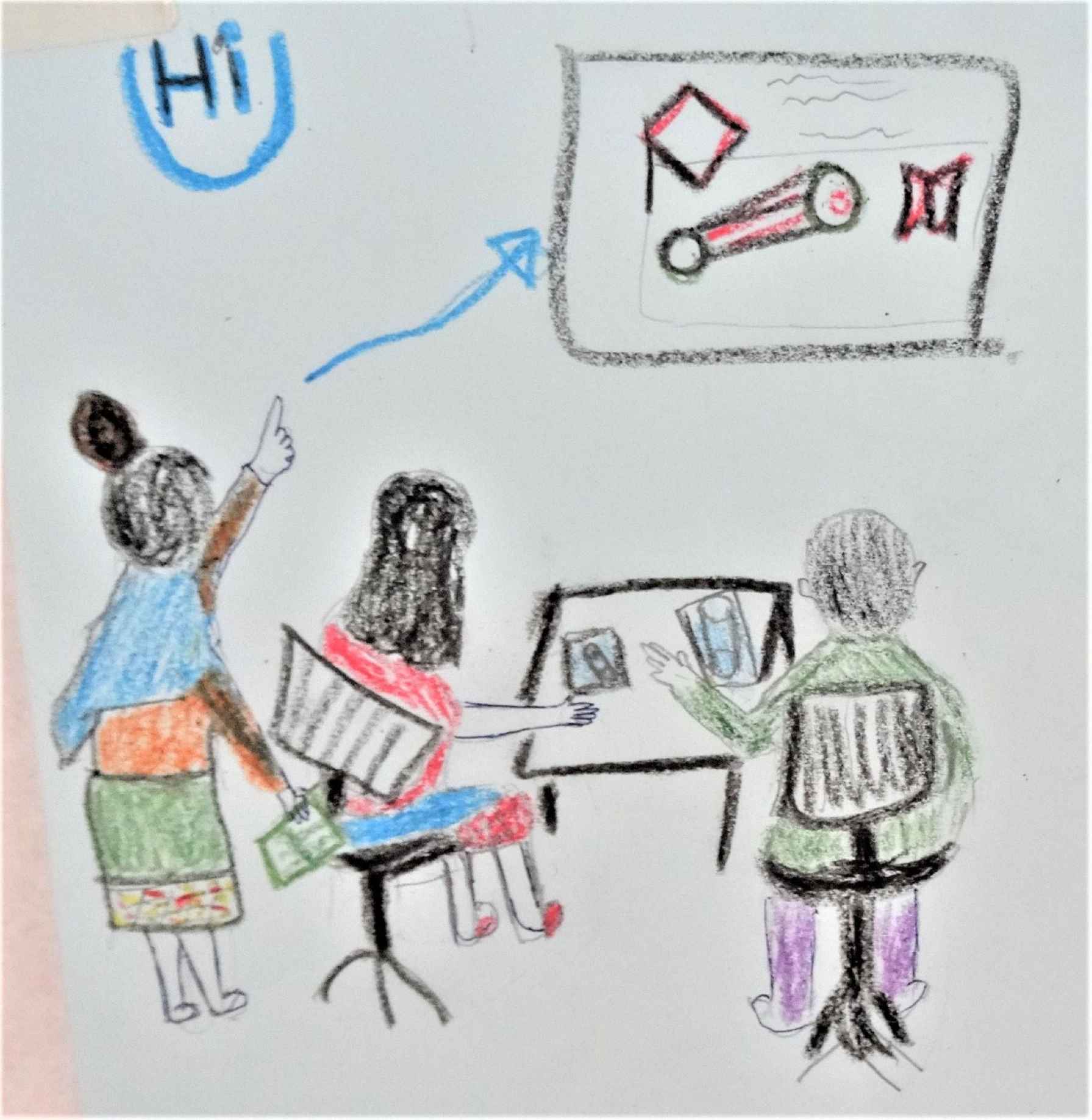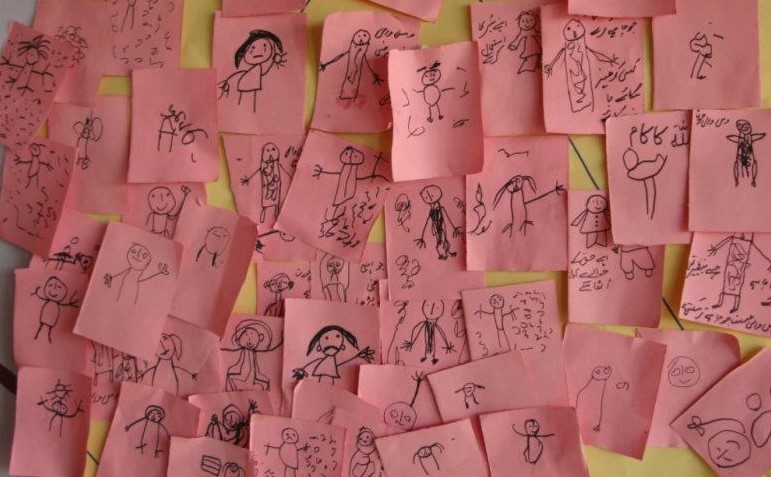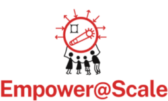Our Values
The Gender Action Learning System (GALS) provides a practical approach to address unequal gender and power relations, and mobilise people to empower themselves. GALS does not prescribe a blueprint of how it should be done. The methodology was developed by Linda Mayoux with local organisations in several countries, including Uganda, building on the Participatory Action Learning System (PALS). It was further developed and adapted by many individuals and organisations. The question “how can we make sure we do it right?” keeps coming back amongst practitioners and organisations that support GALS.
Partners of the Empower@scale initiative support 7 “must have” key principles to help us “to do it right” and we invite anyone who wants to use the GALS methodology to support and build on these as well. The 7 key principles aim to guide anyone who wants to join the movement towards gender justice and sustainable livelihoods through scaling up the use of GALS. Below, the principles are summarised as “our values”. You can find the detailed version here.
 Gender Justice is non-negotiable. The interests of women as well as men are equally addressed when working towards gender justice. Women’s human rights as established in the UN convention on the Elimination of all forms of Discrimination Against Women (CEDAW) are non-negotiable, with men as partners in pursuit of social justice. Equal rights are not a favour or a gift: everyone is born equal.
Gender Justice is non-negotiable. The interests of women as well as men are equally addressed when working towards gender justice. Women’s human rights as established in the UN convention on the Elimination of all forms of Discrimination Against Women (CEDAW) are non-negotiable, with men as partners in pursuit of social justice. Equal rights are not a favour or a gift: everyone is born equal. Make it Fun! Excitement and enthusiasm for change. Having fun together makes it easier for women and men to feel free and work together as equal human beings. Inequalities between women and men are rooted in social norms, beliefs and traditions. Excitement and enthusiasm help to mobilise people to address sensitive issues, change their behaviour and share with others.
Make it Fun! Excitement and enthusiasm for change. Having fun together makes it easier for women and men to feel free and work together as equal human beings. Inequalities between women and men are rooted in social norms, beliefs and traditions. Excitement and enthusiasm help to mobilise people to address sensitive issues, change their behaviour and share with others. Everyone can be a leader. Education level, age, gender identity, economic status or any other parameter does not matter: everyone can be a leader. No title is needed in order to lead change. Cultivate the leadership potential of all participants and strengthen the voice and power of those who currently find themselves in the most vulnerable positions. This empowers everyone to participate and own the change process.
Everyone can be a leader. Education level, age, gender identity, economic status or any other parameter does not matter: everyone can be a leader. No title is needed in order to lead change. Cultivate the leadership potential of all participants and strengthen the voice and power of those who currently find themselves in the most vulnerable positions. This empowers everyone to participate and own the change process.- Start with visions and the positive. Draw visions for the future and focus on positive things. This helps to cultivate a positive energy for change. Never start with problems. Visions for the future are not static, they need to be reinforced and revisited. This triggers a focus on actions whenever problems are discussed.
- Including Everyone. To achieve social justice, start with the people who live in poverty and marginalised situations who are normally excluded from decision making processes. Enable them to prioritise the changes they need in order to empower themselves.
 Action from Day 1 and pyramid upscaling. Change will only be sustainable and scalable when participants feel that they own the process. Every learning activity should therefore focus on what participant can replicate individually or collectively without external facilitation. Actions need to be planned and taken home from the first day of using the methodology to share with others.
Action from Day 1 and pyramid upscaling. Change will only be sustainable and scalable when participants feel that they own the process. Every learning activity should therefore focus on what participant can replicate individually or collectively without external facilitation. Actions need to be planned and taken home from the first day of using the methodology to share with others.- Drawing is believing. Drawing (rather than writing) triggers participants to think outside the box and come up with creative solutions. It does not need to be artistic, it needs to encourage everyone to clarify their own ideas, to believe in their own voice and to communicate with mutual respect and a sense of equality.





